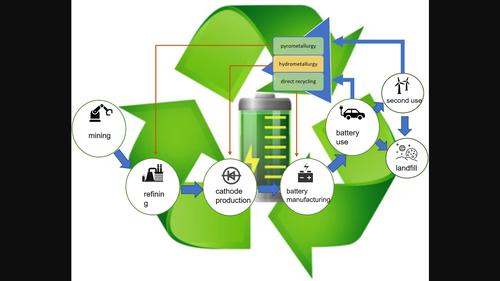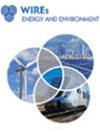废锂离子电池回收的技术选择和设计演变:影响、挑战和机遇
IF 5.4
3区 工程技术
Q2 ENERGY & FUELS
引用次数: 3
摘要
在消费者需求和减少温室气体(GHG)排放的推动下,锂离子电池(LIB)市场正在增长。lib生产的社会环境影响是巨大的;因此,获取有关锂金属开采对人类健康、农业和整个生态系统的影响的知识至关重要。废lib中嵌入的材料具有很高的工业价值。为了最大限度地减少对环境的影响,保护日益减少的自然资源,lib原材料的全球供应链不应仅仅依赖于采矿。相反,制造商应该能够获得从废物中回收的关键材料,作为有价值材料的可持续和可靠的二次来源。从拆解到最终回收阶段,研究与废物LIB管理相关的危害和经济考虑也至关重要。本文评估并强调了目前回收和再利用lib的各种方法,以及潜在的未来发展。本文还讨论了回收废lib的不同技术选择的利弊,以及利用小规模回收技术克服相关障碍的机会。本文章由计算机程序翻译,如有差异,请以英文原文为准。

Technological options and design evolution for recycling spent lithium‐ion batteries: Impact, challenges, and opportunities
The lithium‐ion battery (LIB) market is growing, driven by consumer demand and the imperative to reduce greenhouse gas (GHG) emissions. The socio‐environmental impacts of LIBs production are vast; thus, it is of paramount importance to acquire knowledge about the consequences of lithium metal mining on human health, farming and the overall ecosystem. The materials embedded in spent LIBs have high industrial value. To minimize environmental impacts and conserve declining natural resources, the global supply chain for the raw materials for LIBs should not rely solely on mining. Rather, manufacturers should have access to the critical materials recovered from waste, as a sustainable and reliable secondary source of valuable materials. It is also crucial to study the hazards and economic considerations associated with waste LIB management from disassembly to final recycling stage. This article evaluates and highlights various current approaches to recycling and reuse of LIBs, as well as potential future developments. The pros and cons of different technological options for recycling spent LIBs, and opportunities to use small‐scale recycling technology to overcome the associated barriers, are also discussed.
求助全文
通过发布文献求助,成功后即可免费获取论文全文。
去求助
来源期刊

Wiley Interdisciplinary Reviews-Energy and Environment
ENERGY & FUELS-
CiteScore
11.70
自引率
3.30%
发文量
42
期刊介绍:
Wiley Interdisciplinary Reviews: Energy and Environmentis a new type of review journal covering all aspects of energy technology, security and environmental impact.
Energy is one of the most critical resources for the welfare and prosperity of society. It also causes adverse environmental and societal effects, notably climate change which is the severest global problem in the modern age. Finding satisfactory solutions to the challenges ahead will need a linking of energy technology innovations, security, energy poverty, and environmental and climate impacts. The broad scope of energy issues demands collaboration between different disciplines of science and technology, and strong interaction between engineering, physical and life scientists, economists, sociologists and policy-makers.
 求助内容:
求助内容: 应助结果提醒方式:
应助结果提醒方式:


